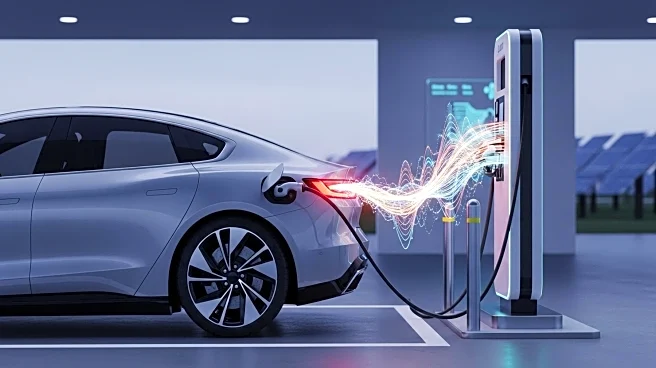What's Happening?
Chinese automotive brands have significantly increased their monthly sales in Europe, with a notable rise in the popularity of plug-in hybrid vehicles (PHEVs). The BYD Seal U SUV emerged as the second-bestselling PHEV in Europe through August, achieving 38,809 sales, trailing only the VW Tiguan, which recorded 42,672 sales. This surge in sales reflects a growing consumer interest in hybrid and electric vehicles, driven by environmental concerns and regulatory pressures in the European market.
Why It's Important?
The increase in sales of Chinese plug-in hybrids in Europe highlights the shifting dynamics in the automotive industry, where traditional European manufacturers face growing competition from international brands. This trend could lead to increased market diversification and innovation, as companies strive to meet consumer demand for sustainable transportation options. The success of Chinese brands in Europe may also encourage further investment in electric vehicle technology and infrastructure, potentially influencing global automotive strategies.
What's Next?
As Chinese brands continue to expand their presence in Europe, it is likely that they will invest in local manufacturing and distribution networks to further enhance their competitiveness. European automakers may respond by accelerating their own electric vehicle development and marketing efforts. Additionally, regulatory bodies in Europe may implement stricter emissions standards, further promoting the adoption of hybrid and electric vehicles.
Beyond the Headlines
The rise of Chinese automakers in Europe could have broader implications for international trade relations and economic policies. It may prompt discussions on trade agreements and tariffs, as well as considerations regarding intellectual property and technology sharing between regions. The success of these brands could also influence cultural perceptions of Chinese products, potentially altering consumer attitudes and preferences.










